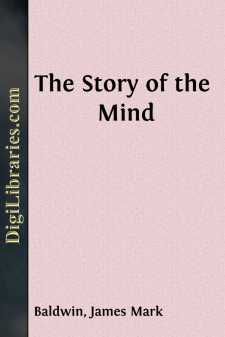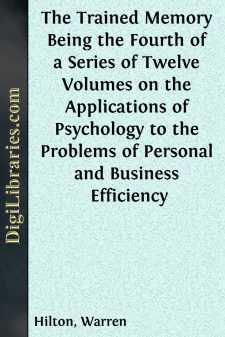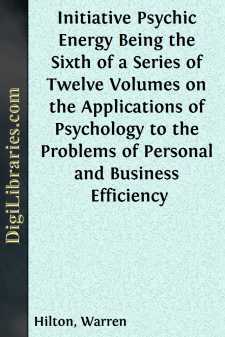Categories
- Antiques & Collectibles 13
- Architecture 36
- Art 48
- Bibles 22
- Biography & Autobiography 813
- Body, Mind & Spirit 142
- Business & Economics 28
- Children's Books 13
- Children's Fiction 10
- Computers 4
- Cooking 94
- Crafts & Hobbies 4
- Drama 346
- Education 46
- Family & Relationships 57
- Fiction 11828
- Games 19
- Gardening 17
- Health & Fitness 34
- History 1377
- House & Home 1
- Humor 147
- Juvenile Fiction 1873
- Juvenile Nonfiction 202
- Language Arts & Disciplines 88
- Law 16
- Literary Collections 686
- Literary Criticism 179
- Mathematics 13
- Medical 41
- Music 40
- Nature 179
- Non-Classifiable 1768
- Performing Arts 7
- Periodicals 1453
- Philosophy 64
- Photography 2
- Poetry 896
- Political Science 203
- Psychology 42
- Reference 154
- Religion 513
- Science 126
- Self-Help 84
- Social Science 81
- Sports & Recreation 34
- Study Aids 3
- Technology & Engineering 59
- Transportation 23
- Travel 463
- True Crime 29
Sort by:
I. WHEN Bartley Hubbard went to interview Silas Lapham for the "Solid Men of Boston" series, which he undertook to finish up in The Events, after he replaced their original projector on that newspaper, Lapham received him in his private office by previous appointment. "Walk right in!" he called out to the journalist, whom he caught sight of through the door of the counting-room. He did...
more...
CHAPTER IINTRODUCTION Science. Before attempting to define psychology, it will be helpful to make some inquiry into the nature of science in general. Science is knowledge; it is what we know. But mere knowledge is not science. For a bit of knowledge to become a part of science, its relation to other bits of knowledge must be found. In botany, for example, bits of knowledge about plants do not make a...
more...
PREFACE. In this little book I have endeavoured to maintain the simplicity which is the ideal of this series. It is more difficult, however, to be simple in a topic which, even in its illustrations, demands of the reader more or less facility in the exploration of his own mind. I am persuaded that the attempt to make the matter of psychology more elementary than is here done, would only result in...
more...
Write JUST ONE WORD on each dotted line.1Fanny has a little red hen. Every day the hen goes to her nest and lays an egg for Fanny to eat. Then she makes a funny noise to tell Fanny to come and get the.A kitten can climb a tree, but a dog cannot. This is very lucky for Nellie's kitten. Every time Joe's big dog comes along the kitten climbs a tree and thecannot follow.3Anna had never seen a...
more...
by:
Charles Collins
BARBOX BROTHERS I “Guard! What place is this?” “Mugby Junction, sir.” “A windy place!” “Yes, it mostly is, sir.” “And looks comfortless indeed!” “Yes, it generally does, sir.” “Is it a rainy night still?” “Pours, sir.” “Open the door. I’ll get out.” “You’ll have, sir,” said the guard, glistening with drops of wet, and looking at the tearful face of his...
more...
by:
Warren Hilton
Chapter I Four Special Memory Processes You have learned of the sense-perceptive and judicial processes by which your mind acquires its knowledge of the outside world. You come now to a study of the phenomenon of memory, the instrument by which your mind retains and makes use of its knowledge, the agency that has power to resurrect the buried past or power to enfold us in a Paradise of dreams more...
more...
by:
Warren Hilton
Chapter I MENTAL SECOND WINDSticking to the JobAre you an unusually persevering and persistent person? Or, like most of us, do you sometimes find it difficult to stick to the job until it is done? What is your usual experience in this respect? Is it not this, that you work steadily along until of a sudden you become conscious of a feeling of weariness, crying "Enough!" for the time being, and...
more...
by:
Vernon Lee
CHAPTER I THE ADJECTIVE "BEAUTIFUL" THIS little book, like the great branch of mental science to which it is an introduction, makes no attempt to "form the taste" of the public and still less to direct the doings of the artist. It deals not with ought but with is, leaving to Criticism the inference from the latter to the former. It does not pretend to tell how things can be made...
more...
by:
Joseph Conrad
CHAPTER ONE When he stepped off the straight and narrow path of his peculiar honesty, it was with an inward assertion of unflinching resolve to fall back again into the monotonous but safe stride of virtue as soon as his little excursion into the wayside quagmires had produced the desired effect. It was going to be a short episode—a sentence in brackets, so to speak—in the flowing tale of his life:...
more...
by:
George Paston
BENJAMIN ROBERT HAYDON PART I If it be true that the most important ingredient in the composition of the self-biographer is a spirit of childlike vanity, with a blend of unconscious egoism, few men have ever been better equipped than Haydon for the production of a successful autobiography. In naïve simplicity of temperament he has only been surpassed by Pepys, in fulness of self-revelation by...
more...











